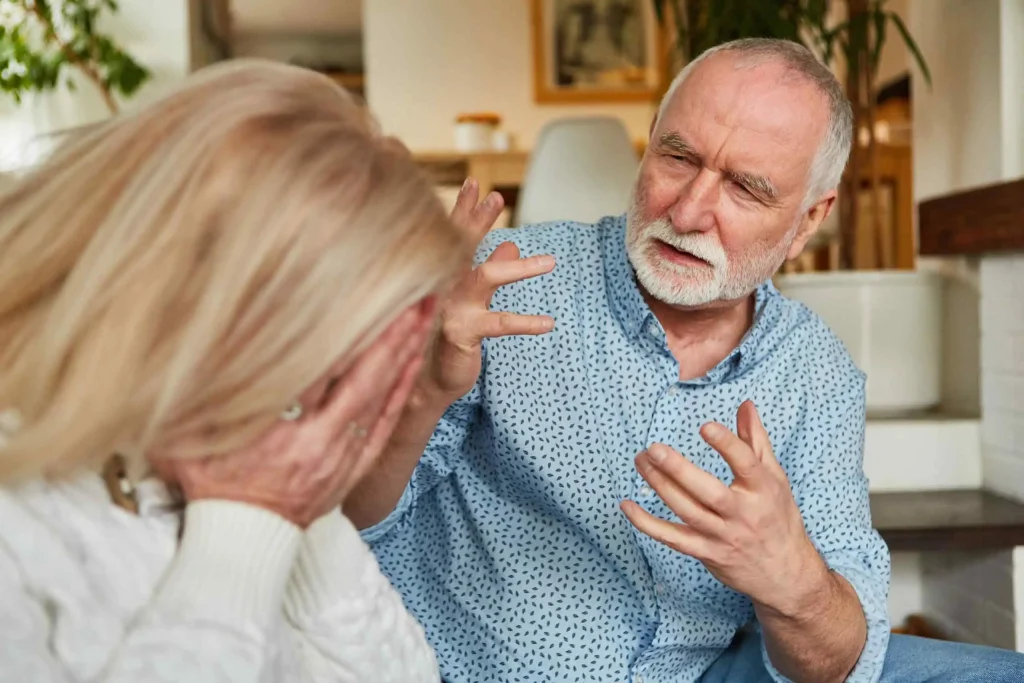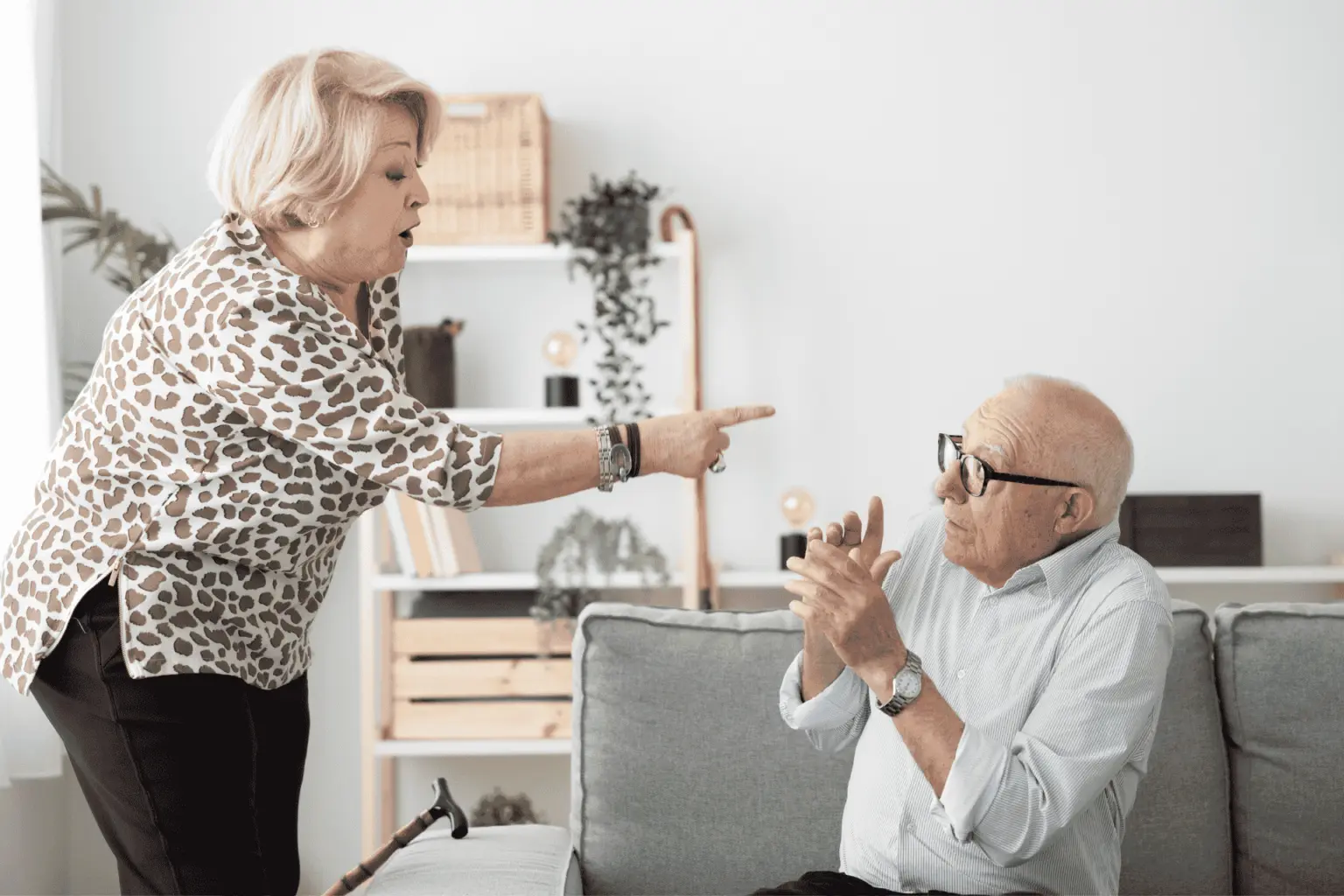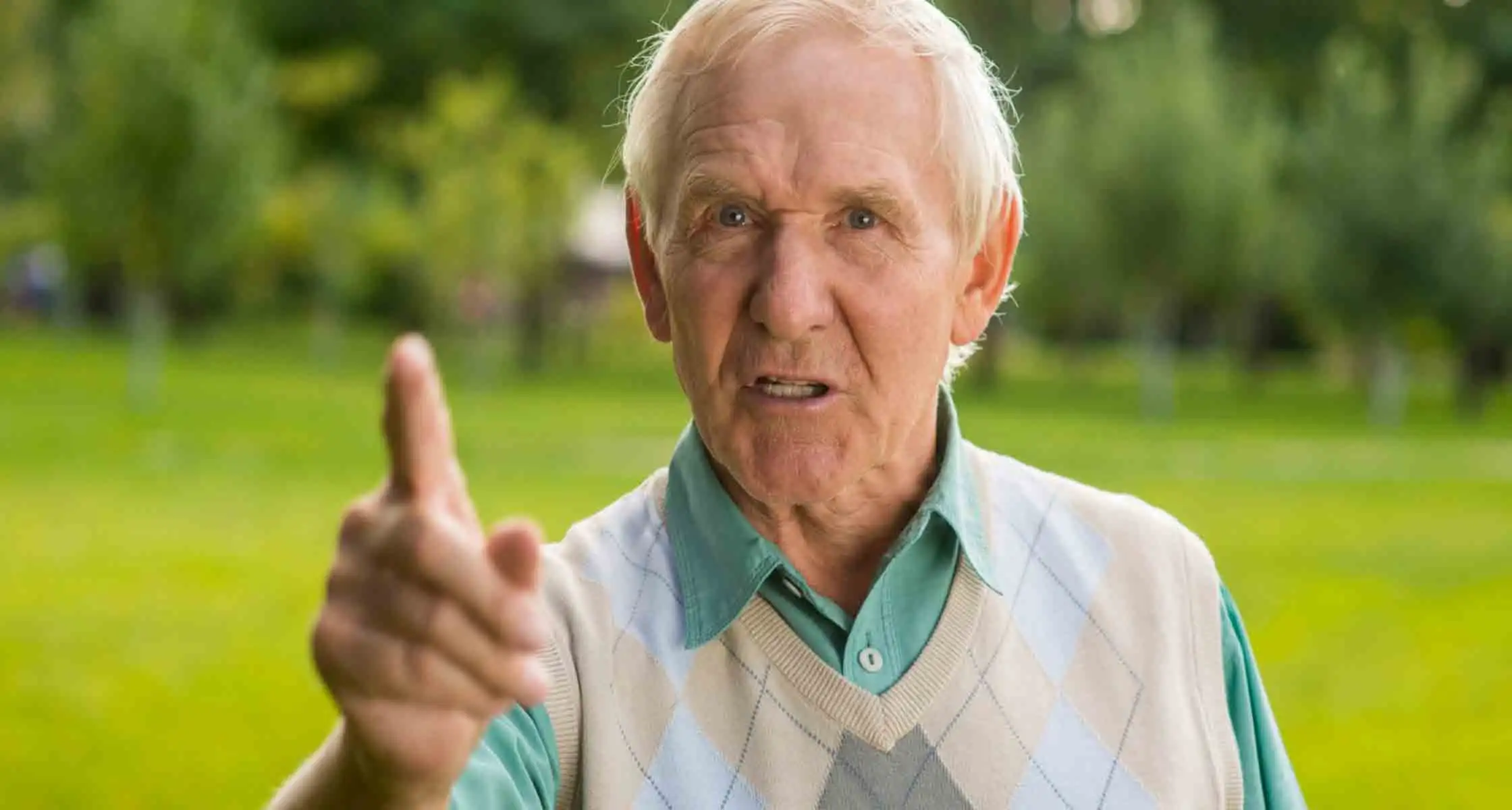
Aggression in the Elderly + Causes and Treatment
Aggression in the elderly is a type of behavioral disorder and is often caused by mental or emotional problems. If aggression in the elderly is not treated, the person can cause physical or mental harm to themselves and others. Sometimes, some issues cause aggression. Chronic aggression can also have serious consequences on your life. When the elderly are too angry and show aggressive behaviors, the level of stress and anxiety increases, and this will have many negative effects on physical and mental health.
Now the question is what causes behavioral problems in the elderly? What is the appropriate behavior with the elderly in case of aggression? To treat this problem, it must first be rooted out and then taken action to solve it. Therefore, follow-up, treatment, and the type of behavior with the elderly are very important. We will examine all these cases in this humanhealthmag article.
Definition of Aggression
What do you think aggression in the elderly means? Senior Aggression is behavior that causes harm and pain to others. In simpler terms, aggression is behavior intended to harm (verbally or physically) another person or destroy the property of others. Aggression can cause harm to others both emotionally and physically. Aggression also creates problems in relationships. All people, especially the elderly, sometimes show aggressive behavior, which is normal. If aggression occurs repeatedly in the elderly, the person should see a doctor. The origin of aggression is anger and rage. This behavior can be divided into two groups:
- Hostile: In this type of behavior, the person intends to hurt and harm others. For example, imagine a child who is always fighting and hitting children of his own age during the school bell.
- Instrumental aggression: In this type of behavior, the person wants to achieve another goal and does not intend to hurt others. Of course, someone may be accidentally hurt in the process.

Causes of Aggression in the Elderly
aggression in the elderly has many causes. Aging itself is a logical reason for the emergence of many problems, and the elderly who experience aggression problems. The most common reason for this behavior is physical problems. Urinary tract infections are common in the elderly. These infections are often long-term and you have to spend a lot of time to treat them. Being involved in a sick person for a long time can make them impatient, and the complications of this problem can be annoying for these people.
Also, other diseases such as skin problems or pneumonia can be the cause of aggression in the elderly and cause aggressive and aggressive problems. If you solve these problems and the elderly person’s aggression still does not go away, you should look for its root in nervous problems. Loneliness can greatly increase the irritability of people and with a flick of the wrist, the person shows severe aggression. As a result, the elderly should not be left alone at all. In addition, neurological and vascular disorders can also be the cause of Senior Aggression and increased symptoms of aggression in the elderly.
The most important disease in which the elderly display aggressive behavior is Alzheimer’s. This disease does not have a specific age, but the likelihood of developing it usually increases from the age of forty. Alzheimer’s has symptoms such as losing objects, isolation, increased vision problems and confusion about place and time, all of which contribute to increased aggression in the patient. To combat aggression in the elderly, you can get help from happiness tips for seniors and get them out of loneliness.
Biological Causes of Senior Aggression
As we mentioned above, aggression in the elderly can have many causes. So if you encounter aggression in caring for an elderly person, try to find the cause. If you can understand the reasons for the irritation and aggression, you can take appropriate measures to correct and treat these behaviors: For example, a person may have the following problems:
- Having constipation
- Drug interactions
- Dirty underwear or diapers
- A sudden change in residence
- Has little rest or sleep
- Too much noise in a large, busy room
- Being pressured by others to do something (for example, to take a bath, or to remember personal events)
- A feeling of losing someone or something that is valuable to the elderly person. (For example, a person may lose the ability to drive)
If you notice these signs, you can eliminate the cause before problems start. Try not to ignore the problem. Not addressing the underlying problem of an aggressive senior will only make things worse. Your doctor may be able to help you identify the symptoms. He or she can medically examine the aggressive senior to look for and diagnose problems that may be causing the aggression. Also ask your doctor if medications are needed to prevent or reduce agitation and aggression.

Treatment of Aggression in the Elderly (Irritability and Anger)
The root of behaviors such as aggression in the elderly is neurological and psychological, and for this reason, drug therapy has many desirable effects in addition to psychotherapy. In case of obvious brain damage and the elderly’s lack of cooperation with psychotherapy, drug treatment is relied on. Do not forget that appropriate strategies for dealing with the elderly and also seeking help from a specialist to find the best treatment solution can be effective. In addition, caregivers should also learn to take care of themselves and be vigilant about their health due to the difficult conditions of care.
Do not forget that disabled elderly people were also young once and do their jobs alone. So do not show their disability by grumbling and expressing impatience. Even some stubbornness in the elderly is due to a specific cause. It shows a kind of protest that is due to the complications of aging. Provide them with the services they like throughout the day and week. By doing this, you have helped increase their acceptance and affection. For example, you can also use techniques to empower older adults.
Types of Aggression in the Elderly
Some aggression in the elderly are as follows:
Aggression in the elderly during bathing
- Reasons: Shame and need for privacy, lack of interest in getting help, discomfort in washing (too cold water or fear of water), having a bad experience, fear of slipping in the bathroom, dementia and forgetting the need for general hygiene.
- Correct behavior: Ask the elderly to find out the reason for the elderly’s fear or aggression: Why not? Are you afraid of slipping? Is the water too hot or cold? Do you forget that you have to take a bath? In this case, you can make the bathroom safer and check its heat and coldness, you can also use a bath chair. Maintain privacy as much as possible. Do not treat him like a child.
Aggression of the elderly to use a cane
- Reasons: Usually, the elderly feel disabled and helpless when using a cane.
- Correct behavior and our advice to the elderly caregiver: Ask for help from his peers. This is helpful at any age! Try to make him realize that using a cane is much more common than he thinks. Watching movies is also very helpful. Remind him that using a cane makes it easier for him to do his activities. A cane reduces the risk of slipping and falling and causing serious injuries. The model of the cane is also important. Men prefer a stylish wooden cane to an aluminum model. Give him the cane without saying anything. For example, do not say: “Take your cane,” but just provide it to him.

Aggression in the elderly when changing clothes
- Reasons: Indifference, apathy, depression, dementia
- Correct behavior: Ask the elderly what their problem is? The clothes or their own sensitivity? Does they like their favorite clothes to be washed regularly and worn? When they go to the bathroom, quickly put the dirty clothes in the washing machine and wash them. If they like certain clothes more, get more of that type of clothes and remove the rest from their wardrobe. Note that wearing the same clothes over and over again is a suspicious sign of Alzheimer’s, memory loss, and impaired decision-making skills.
Anger, rage, and yelling in the elderly
- Reason: Age and illness are two factors that can exacerbate unpleasant human behavior. For example, a person who is highly sensitive and irritable may become angry and impatient or have unreasonable demands. The person taking care of him/her may not be able to calm him/her down easily. Unfortunately, the caregiver is often the target of the anger and shouting of aggressive seniors.
- Our advice to caregivers of the elderly: Try to find the root cause of the elderly’s anger and aggression. The process of growing old is not easy. The aging process can cause dissatisfaction in seniors who have suffered a lot in life. Do not forget that it is not easy to cope with the loss of friends and family members, memory problems and suffering from various diseases.
How to Prevent Senior Aggression
What happens if you are accused of elder abuse? If children or caregivers are not aware of the correct behavior and how to control aggression in the elderly, they will show correct behavior that may cause annoyance to the elderly and torment their own conscience. Teaching how to deal with the elderly correctly in these situations will even make us able to bring a smile to their faces. Below, we will explain how to deal correctly with the elderly who are aggressive and bad-tempered.
Smiling When Talking to the Elderly
Smiling at the elderly and maintaining eye contact with them shows that you are listening to what they are saying well, even if your smile is artificial, it will satisfy their need for attention from you. Aggression in the elderly can be prevented by being kind.

Talking to the Elderly When They Are Making Excuses
Establishing close and friendly communication is the best way to manage aggression in the elderly. Talking about the past is interesting for the elderly. Do not let the elderly get into negative and upsetting stories from their past, as this increases stress and pressure on them. Talk to the elderly about interesting topics from the past, such as: their schooling, their old home, their hobbies, or their youth.
Getting Help From Elderly
Asking for help from the elderly will make them feel better and it is one of the best ways to control aggression in the elderly.. Sometimes helping the elderly with their work will teach you new skills. For example, helping with gardening in the yard and planting various plants and flowers will make both the elderly and the caregiver happy and lively.
Having Fun and Going Out With the Elderly
Spending time outdoors is one of the best ways to reduce aggression in the elderly. Staying at home for a long time is very difficult for an elderly person and when the elderly person does not seem active it may cause depression at any age. so it is better to take them out of the house to take a walk and with the help of this trick both the elderly person and the caregiver’s mind will be freed.
Hugging the Elderly Person
Hugging is one of the best ways to reduce aggression in the elderly. Hugging the elderly person is helpful when they are in a bad mood, do not forget that humans are created to touch and be touched. Elderly people who have negative emotions are the ones who are rarely hugged. Therefore, if you see that they are angry or upset, sit the elderly person down and surprise them with a warm hug.
Concluding Remarks
Aggression in the elderly can be caused by medical conditions, medication side effects, stress, anxiety, social isolation, depression, or chronic pain. To help the elderly manage these feelings, first identify the root cause, respond calmly and empathetically, and validate their feelings. Encouraging healthy expression of feelings and, if necessary, seeking professional help can also be effective.
Some elderly people who have severe anger problems may also self-harm. According to the reasons mentioned, sometimes aggression in the elderly can have no apparent reason and only occur in the face of a bad event. The first step is to understand the elderly person and then work on solving the problem of their aggression. You can also seek help from doctors and counselors to resolve this problem.
We are curious hear your thoughst! What is your take on this topic? Comments belove join the conversation. your opinion could spark new ideas!

Frequently Asked Questions
What Causes Unexplained Anger in Older Men?
Unexplained anger in men can be related to factors such as stress, work or financial pressures, hormonal problems, lack of sleep, or psychological problems such as anxiety and depression.
What Are the Side Effects of Extreme Anger?
Increased blood pressure, heart problems, headaches, a weakened immune system, digestive problems, sleep disorders, and negative effects on relationships and mental health are some of the side effects of extreme anger.
